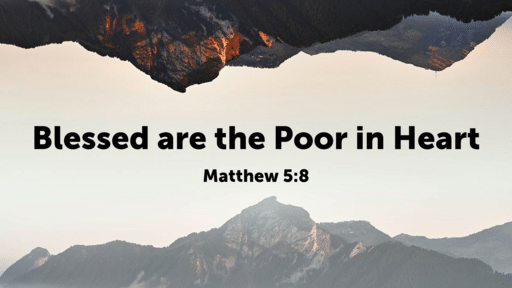Blessed are the poor in heart

Who are the pure in heart, and why and how do they see God? Join Malcolm as he unpacks this deceptively simple beatitude, exploring topics as diverse as the "Beatific Vision" and Seasonally Affective Disorder (SAD).
Bible
Blessèd
Pure
Heart
Pure heart
See God
When they experience seeing God, the faithful will find complete satisfaction in God and enjoy the beauty of all God’s perfections.
Some of the blessings of the beatific vision are, in a sense, negatives. They include freedom from evil, the absence of temptation, and rest from struggle or suffering. Beholding divine glory will alleviate all the weariness of our earthly struggle with sin and death. God will wipe all tears from our eyes (Rev 21:3).
But the most important aspects of the beatific vision are positive enjoyments. These include the direct knowledge of God, the blessing of new life, and the joys of the glorified body. In the final state, there will no longer be any potential for sin or death, and the faithful will enjoy the perfections of God. God is the consummation of all that is beautiful and the summation of all that the faithful desire. “In your presence there is fullness of joy; at your right hand are pleasures forevermore” (Ps 16:11).
